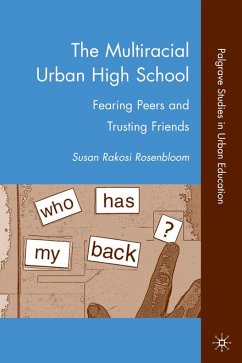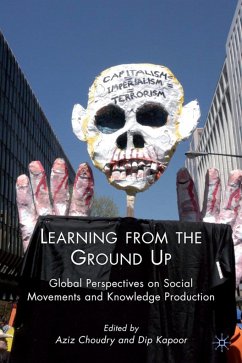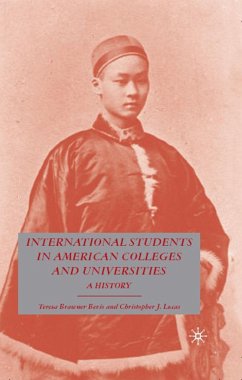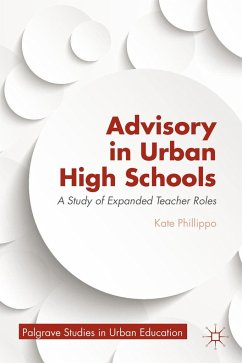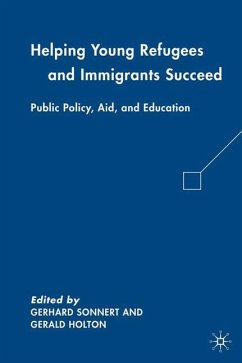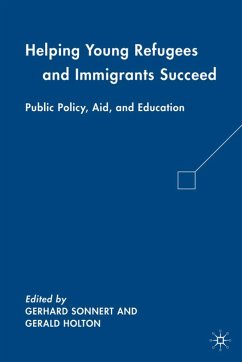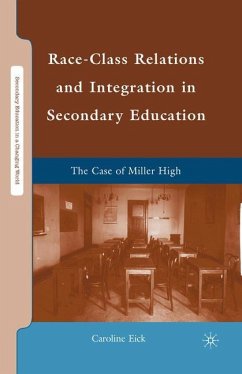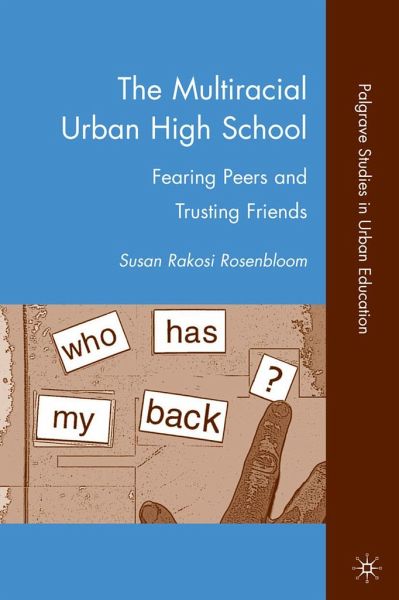
The Multiracial Urban High School
Fearing Peers and Trusting Friends
Versandkostenfrei!
Versandfertig in 6-10 Tagen
38,99 €
inkl. MwSt.
Weitere Ausgaben:

PAYBACK Punkte
19 °P sammeln!
From 1996-2000, thirty minority teenagers (African American, Chinese American, Puerto Rican American, and Dominican American) were interviewed every year for four years to investigate how their experiences in high school shaped their social relationships.





